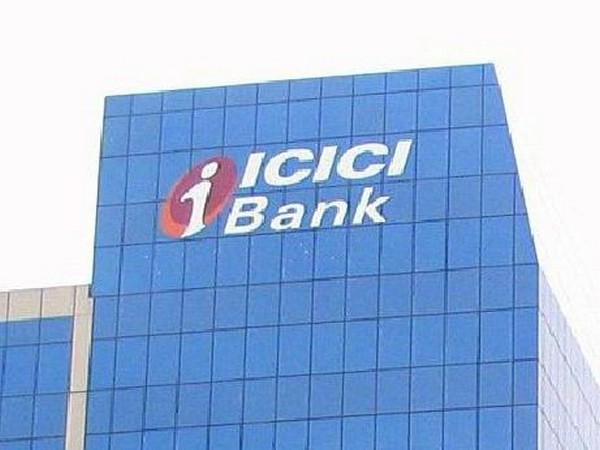Lower provisions lead ICICI Bank to post 52 pc jump in Q1 profit; retail asset stress increases

- Country:
- India
ICICI Bank’s June quarter net profit zoomed 52 per cent to Rs 4,747.42 crore, driven majorly by lower provisions but reported an increase in stress from the retail loans segment.
On a standalone basis, the second-largest private sector lender by assets reported a net profit of Rs 4,616.02 crore for the reporting quarter, up by 77 per cent when compared with the national lockdown-hit April-June period of FY21.
The provision line saw some activity in the reporting quarter, including a change in accounting norms to be more conservative which led to Rs 1,127 crore additional impact and a write-back of Rs 1,050 crore from COVID provisions as the bank grew more confident of the overall asset quality situation exiting the quarter with a Rs 6,425 crore buffer.
The overall provisions came at Rs 2,852 crore, nearly a third of the Rs 7,594 crore set aside for the year-ago period despite an increase in the gross non-performing assets (NPA) ratio.
The bank’s executive director Sandeep Batra said there was a significant impact on collections in April and May owing to the second wave of the pandemic, which resulted in the uptick in both overdues and NPAs for the lender.
The gross NPAs came at 5.15 per cent against 4.96 per cent in the quarter-ago period and 5.46 per cent in the year-ago period. The fresh slippages came at Rs 7,231 crore, of which the retail and business banking contributed Rs 6,773 crore, while SME and corporate segments had Rs 458 crore.
Over Rs, 961 crore of the retail slippages came from the Kisan credit card portfolio, while the jewel loans portfolio contributed Rs 1,331 crore. The bank clarified that the reverses on the jewel loans were due to restrictions due to the lockdown and temporary stress at borrowers' end.
As a percentage of gross advances in the segment, the NPAs on retail and business banking went up to 3.75 per cent as of June, up from 3.04 per cent in March and 2.04 per cent in June last year.
The overall restructured book across regulatory dispensations went up to Rs 4,864 crore from Rs 3,927 crore in March, it said, adding that Rs 2,180 crore was from the retail and business banking contributed Rs 2,180 crore.
Batra said that the bank is ''not worried'' about the retail book and acknowledged that the corporate segment, which had been one of the worst affected for the system in the past, is doing better.
The bank’s retail book grew 20 per cent, at par with the overall domestic credit growth, and now accounts for 61.4 per cent of the overall book.
Corporate loans grew 11 per cent, while lending to small businesses with a turnover of under Rs 250 crore grew 43 per cent and business banking loans were up 50 per cent.
Batra said the bank will continue with its risk-calibrated strategy with a sector-agnostic approach to growing its loan book in the coming time and declined to give a credit growth target for FY22 saying it does not have a number for it internally as well.
After multiple quarters of decline, the overseas book grew 6.65 per cent when compared to the March quarter largely because of lending attached to the trade front linked to India, Batra said, clarifying that there is no change in its policy on the overseas book.
The portfolio rated BB and below grew by over Rs 800 crore to Rs 14,000 crore during the quarter, but Batra explained that this is largely the result of NPAs getting upgraded to the low-rated category and not indicative of any fresh stress build-up.
On the credit cards front, where it has been gaining market share in the absence of rival HDFC Bank, Batra said the ban on Mastercard may have marginal to none impact on the bank because it already has an existing relationship with Visa.
The bank’s core net interest income grew 18 per cent to Rs 10,936 crore on the back of the advances growth and a 0.20 per cent widening of the net interest margin to 3.89 per cent.
The other income grew excluding treasury income grew 56 per cent to Rs 3,706 crore during the quarter which had localised lockdowns as compared to a brute national lockdown in the year-ago period, supported by a healthy 53 per cent growth in core fees. Its overall capital adequacy as of June 30 stood at 19.27 per cent with the tier-I capital at 18.24 per cent.
(This story has not been edited by Devdiscourse staff and is auto-generated from a syndicated feed.)
- READ MORE ON:
- Mastercard
- Visa
- ICICI Bank’s
- jewel
- treasury
- COVID
- India
- Batra
- HDFC Bank
- Kisan
- Sandeep Batra
- FY22
ALSO READ
Weeks before a billion Indians vote, political merchandise sales pick up
Rich and royal: Wives of Nakul Nath, Scindia sweat it out in campaign for their poll victory
Indian American Akshay Bhatia claims dramatic win, books Augusta Masters spot
Retail auto sales in India rose 10% in 2023-24; electric vehicles signal bright future
Mumbai Indians make history, become first team to win 150 T20 matches










